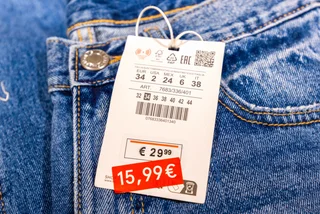Choosing between two firms offering investment advice could make all the difference between growing your wealth or entering a world of unwelcome problems. Unscrupulous firms in Czechia offering investment advice without the proper licenses or regulatory oversight leave customers with little to no protection in the event that things go wrong.
Aisa International, a leading investment company focusing on investment services for expats living in Czechia, is on a mission to raise awareness of the traps facing unwary investors. Speaking to Expats.cz, Aisa co-founder James Pearcy-Caldwell stresses that time spent doing basic due diligence on firms offering investment advice is time well spent.
What is due diligence?
According to Pearcy-Caldwell, due diligence is vital given that certain companies offering investment advice in Czechia are “representing themselves incorrectly or even fraudulently.” Due diligence doesn’t have to be carried out by experts; it can simply mean carving out an hour or two to carry out simple checks on the advisers offering you their services.
The investment industry operates within an intricate web of regulations, licenses, reporting and regulatory scrutiny. If you unwittingly choose an advisor who doesn’t have the right licenses – such as insurance-based firms (IDD) passing themselves off as licensed to provide investment advice (MiFID) – you’ll be left without essential protections. As Pearcy-Caldwell asks: “Do you really want to be advised about taking out an insurance product based in the Caribbean that is not even regulated in the EU, the UK or the U.S.?”
“Basic due diligence means looking on a regulator’s website, which you can do in English. By doing so, you’ll find out whether the firm you’re looking at is investment or insurance-based,” he adds.
The difference in customer protections attendant on accepting advice from these different types of firms is “vast,” according to Pearcy-Caldwell.
“As well as checking that the firm is MiFID licensed, you can also go online and look at their capital adequacy and turnover; this is public data,” Pearcy-Caldwell urges. He adds that IDD-only insurance-based firms passing themselves off as investment advisors “will likely have strangely low turnover and capital adequacy.” According to Pearcy-Caldwell, carrying out basic online research should “prevent people from taking advice from any solely insurance-based firm at all.”
What questions should I ask?
It’s important to remember that your adviser firm should always be the firm represented by the adviser with whom you are directly communicating. If that adviser works for Firm A, conduct your research on Firm A. If the adviser informs you that the investment advice is coming from a different firm, you should seek a separate, clear contract with that other firm.
In this context, one of the first questions you should ask is which firm the adviser works for, and whether that firm appears on your local investment registry. Other important questions include:
- Does your adviser appear on the local investment registry, or on the registry in the country where the investment advice is being given from?
- What are the adviser’s qualifications and do they appear on the local investment registry?
- Does your adviser claim to be an introducer to, or to cooperate with, an investment firm located in Cyprus, Malta, the U.S. or the UK?
- Have you made separate contact with the Cypriot, Maltese, U.S. or UK firm and obtained separately, in writing, an assurance that the adviser is their representative?
- Are you being asked to sign a document saying that an IDD adviser has provided no investment advice to you, or a document which says you received advice from an EU investment firm directly, even though you haven’t?
- Has your adviser presented you with a “scam” or “fraud” sheet printed by a regulator such as the UK’s FCA, claiming that they and their company are “signed up to it” and therefore “approved”?
- When you ask the above due diligence questions, does the adviser claim such information is unnecessary and that those encouraging you to ask such questions are lying?
Those unable to carry out due diligence themselves should contact a lawyer or another individual who can carry it out on their behalf. Do not believe any “due diligence pack” provided by an adviser in isolation, without checking it via other sources.
Most importantly, take due diligence seriously. Choosing the wrong adviser can, according to Pearcy-Caldwell, lead you to invest in products with a high commission that will lose you a lot of money, with no recourse to complain or seek compensation. Expats may be particularly vulnerable to such malpractices, given the language barrier and potential unfamiliarity with local malpractices.
“One hour of due diligence can save you years of heartbreak and loss of money,” Pearcy-Caldwell points out.
Choosing the right firm
Due diligence should stop you picking the wrong firm – but how, on the other hand, can you find the investment adviser that’s right for you?
For expats in Czechia, opting for a firm such as Aisa International, which has specific expertise in delivering advice for foreigners, brings advantages. The company’s strategy is built around serving British and American expats; like the firm’s other advisers, Pearcy-Caldwell is certified in both the UK and the US. Aisa is meanwhile one of few firms on the Czech market holding both MiFID and IDD licenses, enabling it to provide a full suite of products and services with strong consumer protections.
Investing always carries an element of risk. As such, every investor should seek, first and foremost, to avoid unnecessary additional dangers. Due diligence is vital to ensuring that you pick a trustworthy adviser who is properly licensed to provide expert investment advice in Czechia.
Disclaimer: Trading financial instruments carries risks. Always ensure that you understand these risks before trading.












 Reading time: 4 minutes
Reading time: 4 minutes 




















